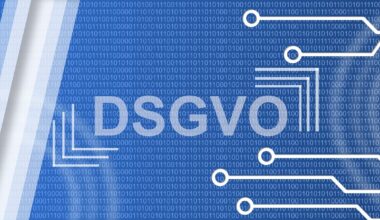Legal Tech and the Future of Intellectual Property Protection
The intersection of technology and law is rapidly evolving, leading to significant changes in how intellectual property (IP) is managed, protected, and enforced. Legal technology, or “Legal Tech,” is designed to provide innovative solutions that streamline legal processes. One primary area affected is IP protection. Legal Tech introduces automated systems that efficiently process IP registrations, thus reducing the duration of applications and lowering costs. These systems can help mitigate human error, making the process faster and more effective. Moreover, innovations in blockchain technology offer new possibilities for IP creation and protection. By establishing clear ownership records on a decentralized platform, content creators can solidify their claims over their works. Furthermore, leveraging AI-driven tools allows for better management of existing IP portfolios, ensuring that owners remain compliant with current laws. Overall, adapting to the latest technologies is crucial for legal practitioners, as clients increasingly demand services that are timely and cost-efficient. Legal Tech not only enhances protection measures but also reshapes the fundamental ways in which IP rights are enforced in our digital age.
As businesses integrate Legal Tech, several key advantages emerge that transform intellectual property strategies. First and foremost, understanding the landscape of digital creation is imperative. Software companies and creators need to ensure they are not infringing on existing patents or copyrights. Legal Tech platforms facilitate thorough searches through extensive databases, allowing professionals to ascertain whether an idea is truly unique. Secondly, companies can utilize analytics tools to track the usage and potential infringements of their intellectual property in real-time. By employing machine learning algorithms, businesses can monitor their IP assets across various platforms, identifying unauthorized use quickly. Additionally, smart contracts powered by blockchain technology can automate licensing agreements, streamlining transactions and providing transparency. These innovations offer protection for both the creators and the consumers, enhancing the overall value chain. Furthermore, access to affordable Legal Tech solutions democratizes IP protections, making it easier for startups to navigate complex regulations. By adopting these technologies, businesses can stay ahead of competitors while safeguarding their intellectual assets more effectively, leading to a more robust innovation ecosystem.
The Role of AI in IP Protection
Artificial intelligence plays a transformative role in enhancing intellectual property protection initiatives through advanced predictive analytics and decision support systems. AI algorithms can analyze large datasets related to patent filings, trademark registrations, and copyright claims to identify emerging trends and potential threats. By leveraging data mining techniques, businesses can conduct more efficient IP audits, ensuring compliance with local and international regulations. Furthermore, AI tools can assist in identifying and predicting infringement risks by scanning online platforms for unauthorized uses of proprietary material. Businesses can utilize machine learning to adapt to changing legal landscapes, preparing for potential disputes before they arise. Another significant benefit of AI is its ability to reduce operational costs associated with IP management. By automating labor-intensive processes such as document review and analysis, firms can free up valuable human resources for higher-level strategic decision-making. This focus on innovation not only protects existing IP portfolios but also encourages new ideas. As AI continues to advance, its role in legal technology will further evolve, becoming an indispensable tool in ensuring effective IP protection.
Regulatory challenges are significantly affecting the evolution of Legal Tech in the realm of intellectual property. The global nature of digital content complicates the applicability of local laws. Various jurisdictions have different regulations regarding copyright, trademarks, and patents, making it difficult for innovators to navigate this complex landscape. Legal Tech aims to create solutions that simplify compliance across borders, enabling businesses to understand their legal responsibilities regardless of where they operate. Moreover, industry stakeholders are increasingly advocating for harmonization of laws to support innovation, which could help in the enforcement of rights and enhance protection. As regulators acknowledge the significance of Legal Tech, there is potential for establishing clear frameworks governing its use in IP protection. Collaborations between technology companies, legal professionals, and government agencies will be crucial in developing standardized protocols. Additionally, ongoing education and training programs should be designed to equip legal practitioners with the necessary skills to effectively utilize these technologies. This comprehensive approach will ensure that businesses can leverage Legal Tech while remaining in compliance with diverse regulatory frameworks.
The Future of Legal Tech Solutions
Looking ahead, the future of Legal Tech solutions in IP protection appears promising. Emerging technologies such as machine learning, AI, and blockchain will likely continue to shape how legal services are delivered and managed. Developers are increasingly investing in creating customizable platforms that allow users to tailor solutions to their specific needs, fostering innovation and driving economic growth. For instance, user-friendly interfaces may enable businesses to handle their IP registrations without intermediaries, drastically reducing costs. Furthermore, the rise of remote work demands secure digital infrastructures, prompting advancements in cybersecurity measures tailored to protect sensitive IP data. As more firms adopt cloud-based solutions, companies will seek assurances regarding data integrity and protection against breaches. The integration of ethical considerations into the development of Legal Tech will also likely gain importance, ensuring that automated processes do not compromise fairness or accountability. Innovations in Legal Tech will promote collaboration between inventors, lawyers, and software providers, thus expanding the boundaries of intellectual property protection and creating a more resilient digital ecosystem.
Collaboration among various stakeholders is essential for the successful implementation of Legal Tech in intellectual property protection. Legal professionals, technology innovators, and policymakers must work together to develop effective applications that address the needs of today’s digital economy. This collaboration promotes a more holistic approach towards identifying challenges within IP systems. By engaging in open discussion, all parties can share insights, ultimately leading to superior solutions. Workshops and seminars can help create awareness about available technologies and promote best practices to protect intellectual property effectively. Furthermore, fostering partnerships between educational institutions and tech companies can lead to innovative research initiatives aimed at improving Legal Tech. Mentorship programs could also be established, pairing seasoned legal practitioners with emerging tech entrepreneurs, ensuring that future solutions are informed by experience. This collective effort will aid in bridging the gap between law and technology while creating a shared vision for the future of intellectual property protection. Such engagement is crucial because it will ensure that the legal community is ready to meet the challenges posed by the evolving landscape of innovation.
Conclusion
In conclusion, the fusion of Legal Tech and intellectual property protection is reshaping the legal landscape for businesses and creators. The advantages of adopting Legal Tech are apparent, from improved efficiency to streamlined compliance across regulations. As artificial intelligence and blockchain evolve, they offer unprecedented opportunities to enhance IP management and enforcement. However, the road ahead requires careful navigation of regulatory challenges and proactive stakeholder collaboration. By preparing and adapting to these changing dynamics, legal professionals and technology developers can foster an environment of innovation that bolsters the digital economy. Stakeholders must prioritize fair practices, ensuring that technological advancements benefit all, including the creators of unique ideas. Building a robust infrastructure for intellectual property protection not only safeguards individual works but also enriches the broader creative ecosystem. As these trends continue to unfold, the future for legal professionals and their clients becomes increasingly intertwined with technology, paving the way for a modern legal landscape that fully embraces innovation while protecting invaluable intellectual assets. Ultimately, the evolution of Legal Tech in this arena stands to benefit society as a whole by supporting creative endeavors.
Legal Tech and the Future of Intellectual Property Protection: As businesses leverage technology to manage their legal affairs, the realm of intellectual property faces transformative changes. This article explores the role of Legal Tech in enhancing IP protection, focusing on emerging technologies, regulatory challenges, and opportunities for collaboration among stakeholders. By understanding these dynamics, legal practitioners and businesses can adapt to the evolving landscape in an increasingly digital world.





